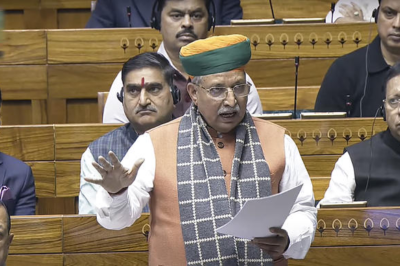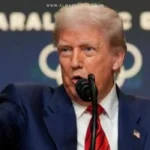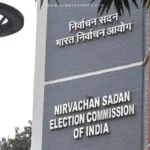
The Constitution (129th Amendment) Bill and The Union Territories Amendment Bill, both aimed at facilitating One Nation, One Election, were introduced in the Lok Sabha on Tuesday amid sharp debates and opposition protests.
Highlights of the Bills
- The Constitution (129th Amendment) Bill: Seeks to enable simultaneous elections across the country.
- The Union Territories Amendment Bill: Proposes aligning elections in Union territories (Puducherry, Delhi, Jammu, and Kashmir) with Lok Sabha polls.
Law Minister Arjun Ram Meghwal, introducing the bills, argued:
- The legislation would not alter the federal structure or tamper with the basic structure doctrine.
- Objections from the opposition were deemed political rather than substantive.
Division of Votes
The Constitution (129th Amendment) Bill saw 269 votes in favor and 198 against after a 90-minute debate.
Arguments by the Government
- Law Minister Arjun Ram Meghwal:
- Rejected claims that the bills undermine federalism.
- Assured judicial review, separation of powers, and state autonomy remain intact.
- Union Home Minister Amit Shah:
- Recommended referring the bills to a Joint Parliamentary Committee (JPC) for further deliberation.
Shah emphasized the need for a detailed study and wide consultations across levels before implementation.
Opposition’s Criticism
- Congress: Manish Tewari described the move as an assault on the federal structure of democracy and questioned Parliament’s legislative competence over the matter.
- Samajwadi Party: Dharmendra Yadav accused the bills of paving the way for “dictatorship”.
- DMK: T.R. Baalu argued that simultaneous elections undermine state autonomy and curtail voters’ rights to elect governments for a five-year term.
- Trinamool Congress: Kalyan Banerjee said the bills undermine the mandate of state assemblies and push a centralized agenda.
- AIMIM: Asaduddin Owaisi claimed the reforms would diminish the influence of regional parties.
Support from BJP Allies
- Telugu Desam Party (TDP): Argued One Nation, One Election would reduce expenditure and logistical burdens of frequent elections.
- Shiv Sena: Shrikant Shinde criticized the opposition for being resistant to reforms.
Speaker’s Controversy
The introduction of the bills sparked chaos when Speaker Om Birla allowed treasury benches to speak first, prompting objections from the opposition. Parliamentary Affairs Minister Kiren Rijiju clarified that all parties would be allowed to present their views.
Key Concerns and Next Steps
The opposition demanded that the bills either:
- Be withdrawn, or
- Be referred to a parliamentary committee for further analysis and public input.
The JPC deliberations and subsequent parliamentary discussions are expected to determine the future of the proposed reforms, which continue to divide opinion on issues of democracy, federalism, and electoral efficiency.
The government’s push for One Nation, One Election raises critical debates on constitutional integrity, fiscal efficiency, and state autonomy, fueling both support and resistance across the political spectrum.









































Leave a Reply